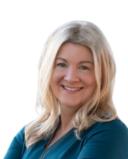Eating Disorders
National Eating Disorders Awareness Week: Be the Change
Part 2: My 30-year career in eating disorder treatment.
Posted February 23, 2022 Reviewed by Lybi Ma

In this Part II, I continue my reflections on what I’ve learned throughout my 30-year career in eating disorders treatment, tied to the theme for this year's National Eating Disorders Awareness Week (NEDAwareness Week): See the Change, Be the Change.
The White House released a statement last Friday recognizing NEDAwareness Week, marking the first time an administration has done so since George H. W. Bush in 1990. This declaration sends a message that we need to recognize eating disorders as mental illnesses that deserve attention. Interestingly, it was also three decades ago that I first began my career as an eating disorder treatment specialist.
Be the Change: Be Curious
I’ve always prided myself as being a lifelong learner. When it comes to understanding eating disorders, we can’t be set in our ways. As professionals in this field, we need to be curious about those things that challenge our conceptualization of eating disorders. There is much polarization in the field regarding brain disease versus psychosocial disorder or food addiction versus “all foods fit,” but we all must find nuggets of truth in each argument and set aside our dichotomous thinking. Challenge yourself to stay up to date on current thinking by reading journals and attending industry conferences.
We need more professionals willing to be trained in this field, as we can no longer keep up with the demand. I also warn against taking on eating disorder clients without proper training and mentoring. It requires a specialization; don’t get in over your head. The International Association of Eating Disorder Professionals is dedicated to the training and certification of eating disorder professionals.
Be Compassionate
When it comes to eating disorders, we need to keep a spirit of compassion for those who are suffering, their loved ones, and those treating this “sticky web” of disorders. No one sets out to destroy their lives. Stereotypes and social biases only perpetuate existing misinformation, further hurting suffering individuals. Shame keeps this disorder hidden. Instead, we need to encourage people to seek help. It is not something that people can simply “just get over” on their own.
Be an AdvocateHelp Others
We require more prevention and access to treatment. Eating disorders do not discriminate. All socio-economic, cultures, races, gender, and sexual preferences are susceptible to an eating disorder. In fact, our marginalized communities are most vulnerable. We need more providers trained and recruited to treat these populations. Thirty years ago, they touted this as a white, upper-middle-class problem. Oh, how things have changed. Get involved. Create new opportunities. Point those in need to free or low-cost resources.


